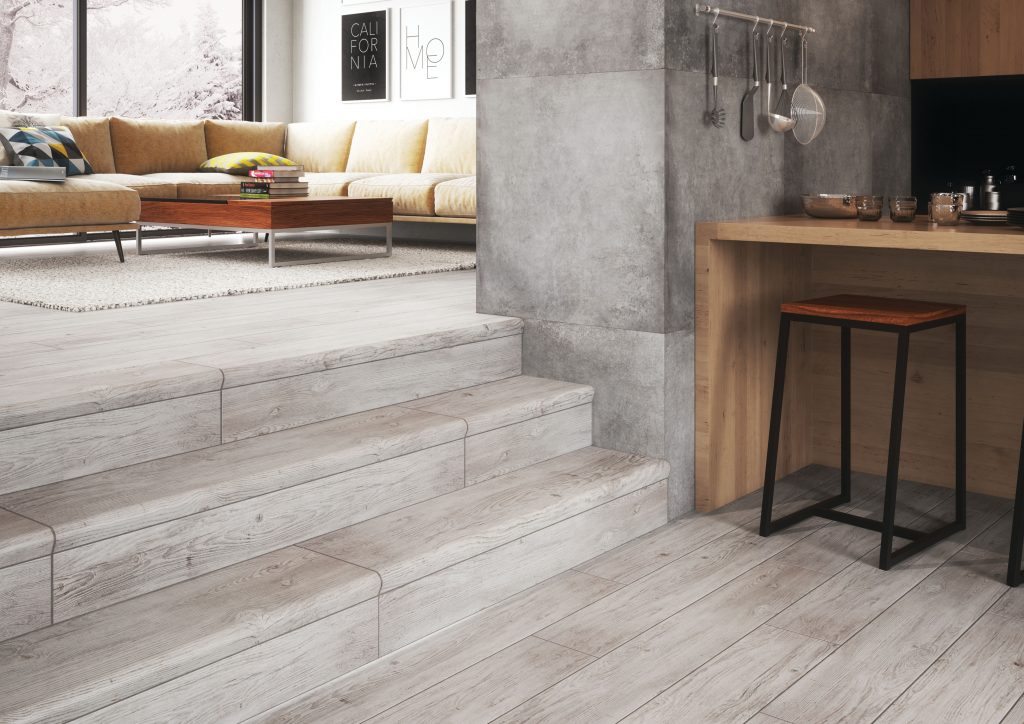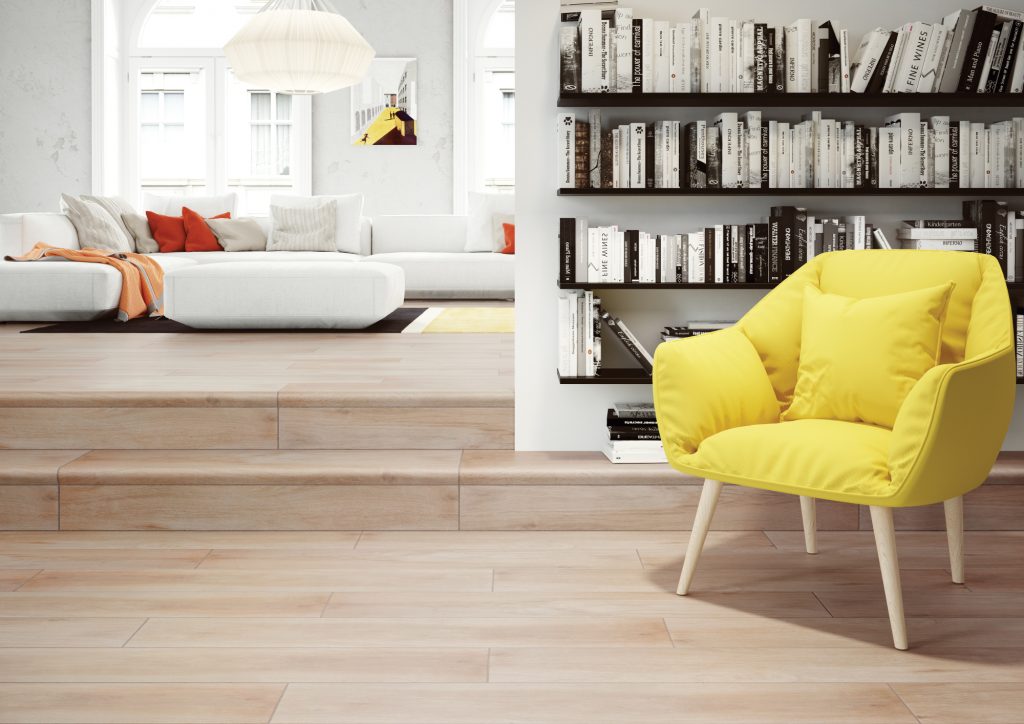Ceramic tiles, alongside wood, are among the most commonly chosen materials for flooring. They are successfully used not only in kitchens and bathrooms but also in hallways and on stairs, where they provide exceptional durability. What kind of ceramic tiles should you buy for indoor stairs to ensure both durability and an elegant look?
Tiles for Indoor Stairs – Is It a Good Idea?
Homeowners considering finishing materials for their homes or apartments often wonder if ceramic-tiled stairs are truly a good choice. From both aesthetic and economic perspectives, tiles tend to outperform wood, and the reason is simple. Ceramic tile stairs are primarily more affordable than wooden ones, even when choosing high-quality tiles. Tiles that imitate stone or wood can look so realistic that they are nearly indistinguishable from natural materials, making the cost savings even more justified.
Ceramic tile stairs can also be completed much faster, while offering greater durability and ease of maintenance. Such stairs require no additional care, unlike their wooden counterparts, and time does not leave its mark on them.
Modern tiles for indoor stairs are produced in lengths and widths that fit typical stair dimensions, making it easy to install them without excessive cutting and additional grout lines that could detract from the aesthetic appeal of the design.
How to Choose Ceramic Tiles for Indoor Stairs?
To fully benefit from ceramic tile stairs, it’s important that the tiles themselves have the appropriate mechanical and chemical resistance. Several different types of ceramic tiles are available on the market: anti-slip, matte, polished, textured, and glazed. For stairs, anti-slip tiles with a textured surface are best. These tiles can imitate both natural stone and wood.
Before purchasing, it’s also important to check whether the selected products are marked as resistant to detergents. Resistance to chemicals will allow you to clean the floor with commonly used cleaning agents containing anionic and cationic surfactants.

What Tile Parameters Should You Consider?
For indoor stairs, frost resistance is not necessary, but the wear resistance rating is crucial. Stairs are a heavily used surface, so it’s best to choose tiles with a wear resistance class of PEI4 or PEI5 and an anti-slip rating of R10-R11.
It’s also important to consider the bending strength according to ISO 10545-4. Stairs will be subjected to heavy loads, so higher bending strength will ensure greater durability. It’s best to choose tiles with a minimum bending strength of 27 MPa, ensuring the stairs can withstand greater stress.

Light or Dark – Which Tiles to Choose for Indoor Stairs?
The color and pattern of the ceramic tiles are purely an aesthetic choice. Light-colored tiles visually enlarge the space and give a sense of openness and cleanliness, but they also tend to show dirt more easily. Light ceramic tiles are very versatile, making them suitable for both small and large rooms, while dark tiles are better suited for spacious interiors where you don’t need to worry about making the space look smaller.
Monochromatic indoor tile stairs without distinct patterns can look very elegant, but there is a risk that dirt will be more noticeable. On the other hand, tiles with irregular patterns mimicking natural wood grain or stone veining will help conceal dust or small particles of dirt.
Installing Ceramic Tiles on Stairs – Is It a Big Challenge?
Achieving the desired level of aesthetics and durability for ceramic tile stairs requires knowledge and skill. The final result largely depends on the installation method and the precision of the professional laying the tiles.
Two types of tiles are typically used on stairs – specialized step tiles with anti-slip grooves for the treads and smooth standard tiles for the risers. Ceramic tiles are adhered to the stairs using special adhesives for ceramic tiles. The surface needs to be cleaned and primed, followed by an even layer of adhesive spread across the surface and on the tiles themselves. The tiles are then laid one next to the other, ensuring they are properly leveled. During the installation, it is crucial to fill the space between the substrate and the tiles thoroughly, as any gaps may lead to cracks. After the adhesive dries, the tiles are carefully grouted, cleaned, and the grout lines are sealed.
Indoor ceramic tile stairs can be both aesthetically pleasing and durable. Solid ceramic tiles have such high mechanical, chemical, and thermal resistance that they will maintain their flawless appearance for many years. The key is to choose the right product and apply it skillfully.






 This website uses cookies to improve your experience when navigating. They include cookies classified as necessary, and they are stored in the browser as they are necessary for the operation of the basic website functions. We also use third-party cookies that help us to analyse and understand the way you use the website. Such cookies will be stored in your browser only upon your consent. You can also resign from these cookies. However, if you resign from some cookies, it may affect your comfort when browsing.
This website uses cookies to improve your experience when navigating. They include cookies classified as necessary, and they are stored in the browser as they are necessary for the operation of the basic website functions. We also use third-party cookies that help us to analyse and understand the way you use the website. Such cookies will be stored in your browser only upon your consent. You can also resign from these cookies. However, if you resign from some cookies, it may affect your comfort when browsing.